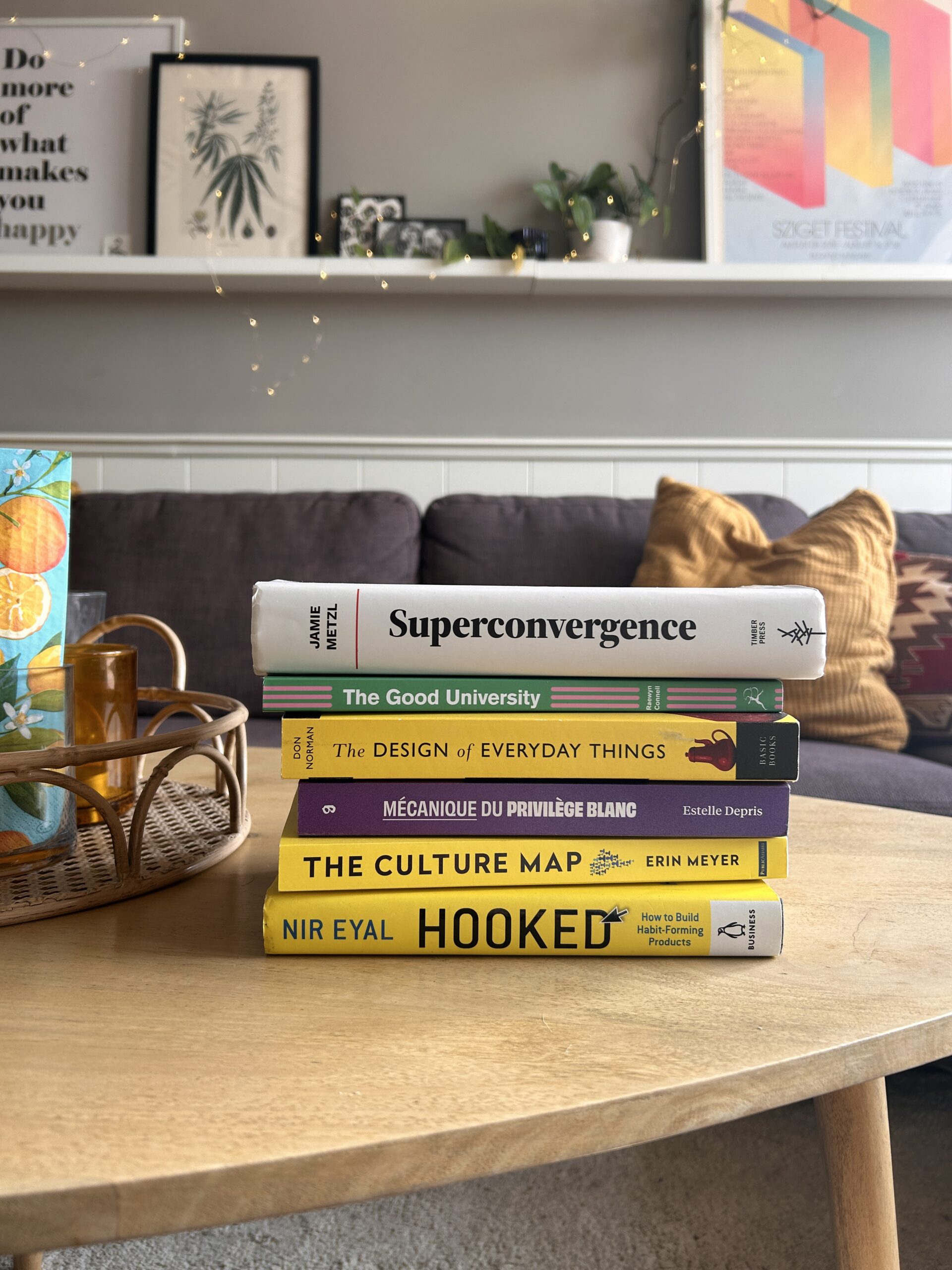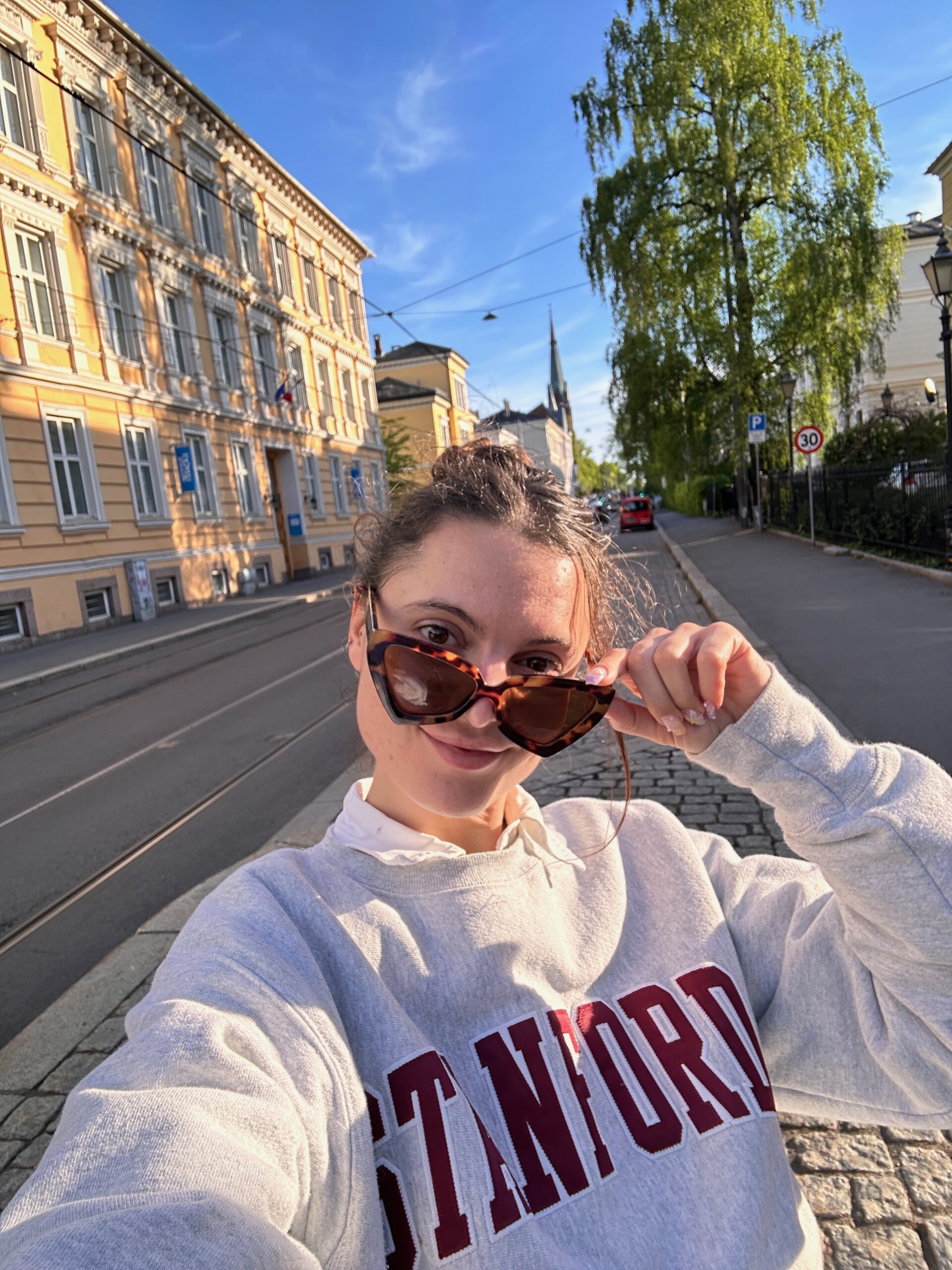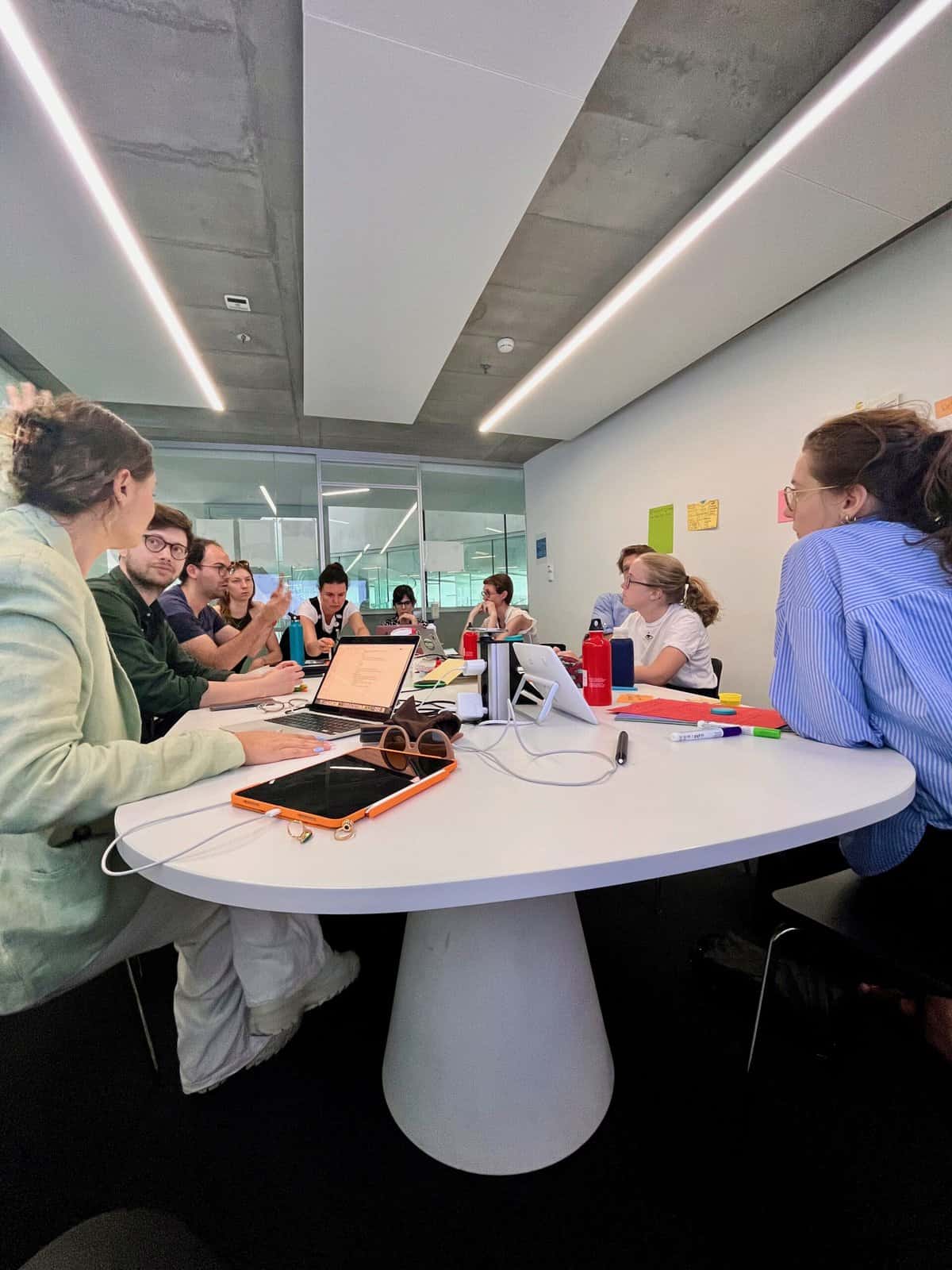Thinking about applying for a PhD? I’ve been there! Whether you dream of becoming a researcher, professor, or renown expert in your field, earning a doctoral degree is a rewarding but equally challenging endeavour. This “How to Apply for a PhD Guide” guide offers practical insights, clear steps, and personal reflections to help you navigate the process, based on my own experience as a PhD candidate. From choosing the right programme to crafting a winning application, you’ll find everything you need to succeed in here!
Table of Contents

Need help? Let me guide you!
I would love to accompany you on your PhD journey. Together, we’ll materialise your goals into a concrete plan of action. I have helped many students in their application process and supported their acceptance in competitive programmes such as at Oxford University after doing so myself.
My experience builds on a decade in academia and numerous experiences leading research projects and working in teams of ambitious individuals seeking to make a difference to this world, without sacrificing their health and happiness.
Academic Coaching • Goals Setting • Career Advice • CV feedback • Personal Growth • Productivity
My PhD Experience
When I first considered a doctorate degree in 2020, I had more questions than answers and felt incredibly scared of making the wrong choice of PhD programme. I applied to several PhD degrees across Europe and was accepted into two programmes, at Oxford University (Department of International Development) and Leiden University (Faculty of Governance and Global Affairs).
It was not an easy decision, but I eventually chose to go for a fully-funded doctoral programme in Security and Global Affairs at Leiden University in The Netherlands. I thought that this would give me more freedom in my work and personal life. After spending two years in Oxford and entering into what seemed like an interminable pandemic, I needed a change of scenery and financial stability.
In the end, I am so glad I made that choice because it truly enabled me to flourish not only as a researcher but also as a person. Being able to pursue my PhD degree while having a flexible and supportive work environment allowed me to explore all sorts of parallel activities, from entrepreneurship to leadership, and to travel extensively. This, for me, was the true splendour of pursuing a PhD programme in a European university. It gave me the assurance and stability I needed to learn how to fly with my own wings.
While pursuing my PhD, I had the chance to:
- win two prestigious scholarships
- complete a two-year policy and leadership course based at Oxford University, United Kingdom
- complete a fully-funded research residency of one month at the University of Oslo, Norway
- lead a research lab of 9 doctoral researchers
- write and publish 5 scientific papers
- speak at 22 international conferences and events
- teach 600+ undergraduate students
- travel to 15 countries
- start this blog!
The journey was filled with ups and downs, as you might imagine. It can be difficult to feel supported, especially when working on an individual project and being part of a very large institution. As PhD candidates, we constantly receive negative feedback and criticism, which can be crushing for your confidence and self-esteem.
What helped me most was speaking to current and former PhD students and trusting my decisions. Now, having completed my PhD, I hope this guide can offer others the kind of advice I wish I heard early on!
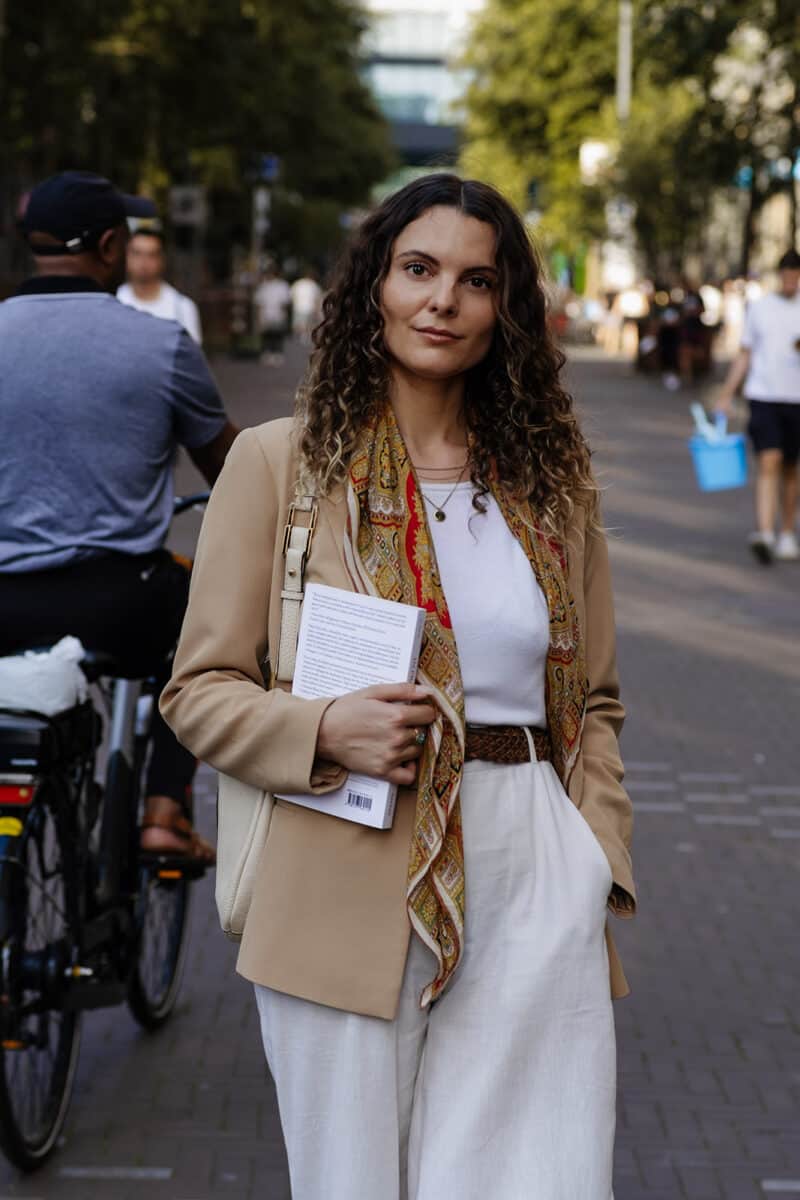
What is a PhD degree?
A PhD (Doctor of Philosophy) is the highest academic degree awarded by universities. It typically involves original research that contributes new knowledge to your chosen field. You’ll work under the guidance of one or more supervisors and your work culminates in a dissertation or thesis. Your PhD will either be a fully independent project that you can lead the way you want or form part of a broader research project, in which case you’ll follow more precise guidance from your supervisor and work within a team.
Pursuing a PhD in European Universities
In Europe, PhD programmes vary by country. For example, in Germany or the Netherlands, PhDs are often considered employment positions: you’ll receive a salary and are hired by the university. In the UK or Spain, PhD students may receive a stipend or funding from a grant but are not formally employed. Most European PhDs last 3-4 years and are increasingly interdisciplinary. They involve minimal training and coursework and focus on independent research and writing. Depending on your university and contract, you may have teaching and grading duties. You may also be required to support your faculty in other ways, for example through administrative tasks.
Pursuing a PhD in the United States
PhD programmes in the US usually combine coursework and research. The first 1–2 years are dedicated to graduate-level classes, followed by comprehensive exams that determine your readiness for independent research. After passing these, you advance to candidacy and begin your dissertation. Most programmes take 5–7 years. Funding is typically provided through teaching or research assistantships.
How to apply for a PhD in a foreign university?
Applying to a PhD generally requires similar steps whether you do so at home or abroad: an academic CV, a cover letter or personal statement, references, and a research proposal. However, applying for a PhD in a foreign university may involve extra steps such as visa requirements, language certifications (like TOEFL or IELTS), and possibly translations of transcripts. I recommend you reach out to the university’s international office and connect with current international PhD students to understand the process unique to each university.
How long does it take to get a PhD?
The duration depends on the country, discipline, and your enrolment status. Humanities and social sciences may take longer than lab-based sciences. In Europe, it usually takes 3–4 years full-time to complete a doctorate degree. In the US, it takes 5–7 years. Part-time studies can stretch this further.
Part-time vs full-time PhD
A full-time PhD allows you to immerse yourself in your research, often with structured supervision, funding, and access to academic resources. It’s ideal if you’re aiming to complete the degree in the shortest possible time and are able to dedicate yourself fully to academic life. In contrast, a part-time PhD offers greater flexibility. It can be a good option for professionals who want to continue working, caregivers managing family responsibilities, or individuals who cannot relocate. In this case, time management and discipline are crucial. Not all institutions or departments offer part-time options, so it’s essential to check in advance.

32 Important Lessons to Guide you in your Academic Career
Over the course of a decade in the world of universities and research, I’ve gathered precious lessons which have helped me adopt a growth mindset and achieve my objectives. These 32 wisdom lessons I’ve collected along the way encapsulate the heart of my academic journey—a beautiful mix of experiences, failures, successes, and revelations!
When to apply for a PhD degree?
There is no wrong or right time to apply for a PhD. The most important aspect to consider in terms of timing is whether you’re ready to dedicate every day of your life for up to 7 years to a research topic. Do you feel extremely passionate about a research subject? Are you willing to spend several years to expand knowledge on this field? Then it might be a good time to apply for a PhD degree. Here are a few important questions to consider.
Post-graduate Studies
After completing a Bachelor’s degree, many students choose to continue with post-graduate studies. There are different types of post-graduate degrees you can pursue, from a one-year Master’s of Science (MSc) to a two-year Master’s of Philosophy (MPhil), or a Doctorate of Philosophy (PhD) programme. For example, you can see the list of graduate programmes at Oxford University to get an idea of the variety of degrees you can get after obtaining a Bachelor’s degree.
A Master’s degree is typically the next step and offers a valuable opportunity to deepen your academic knowledge, explore specific research interests, and develop essential skills like critical thinking, academic writing, and research methodology. Pursuing a Master’s degree can help you determine whether a PhD is the right path for you. Some students discover new areas of interest or decide to shift focus entirely. During a Master’s, you can build relationships with professors who may later serve as PhD supervisors or write reference letters.
Applying for a PhD after a Master's Degree
Applying for a PhD after a Master’s degree is the most conventional and widely accepted path. A Master’s helps you develop advanced knowledge in your discipline, gain hands-on research experience, and produce academic writing samples—all crucial elements for a strong PhD application. Your Master’s thesis or dissertation can serve as a foundation for your future doctoral research or at least demonstrate your ability to carry out an independent academic project. Furthermore, professors from your Master’s programme can become important referees who advocate for your research potential. Many PhD programmes expect applicants to have clear, well-formulated research questions, which are easier to craft after in-depth Master’s level study. This pathway also allows you to get familiar with academic norms, such as how to navigate peer-reviewed publishing or present at conferences.
Can you Apply to a PhD without a Master's?
Yes, in some academic systems, particularly in the United States and the United Kingdom, it’s possible to apply for a PhD directly after completing a Bachelor’s degree. These are often integrated or combined PhD programmes that include a year or two of coursework (similar to a Master’s) before transitioning into the research phase. This route is typically designed for students who have demonstrated exceptional academic ability and a clear motivation for research early in their studies. That said, skipping a Master’s is not without challenges. You’ll be expected to develop research skills rapidly and keep pace with peers who may already have postgraduate experience. It can also be harder to define a strong research proposal or find academic mentors who can vouch for your readiness. In other countries, such as in most of Europe, a Master’s degree is generally required before enrolling in a PhD. Therefore, whether or not you need a Master’s depends largely on where you’re applying, and your own level of preparedness.
PhD Application Support
Need help while writing your personal statement, research proposal, or cover letter for your PhD application? I’ve written countless of successful degree and scholarship applications for prestigious programmes around the world, and helped many more others do so as well.
I’d love to help you showcase your skills and experience in a way that makes you stand out from your competitors! Crafting creative and impactful stories is my specialty.
Academic Coaching • Goals Setting • Career Advice • CV feedback • Personal Growth • Productivity

What do you need to apply for a PhD programme?
What you need to apply for a PhD programme varies depending on the university and the research project. These are the fundamental elements you need for any PhD application, but make sure you check the requirements of your prospective programme.
Academic CV
Your academic CV is a detailed summary of your educational background, research experience, skills, and accomplishments. Unlike a standard professional resume, it should include sections on education, thesis or dissertation titles, academic awards, relevant coursework, teaching experience, conference presentations, and publications if any. Check out my 15 tips to improve your CV if you are looking for more detailed CV advice.
In general, it’s good practice to tailor your CV to the programme you’re applying for, highlighting aspects most relevant to the department you aim to join. Avoid generic templates and aim to present a clear, polished document that demonstrates your academic trajectory.
Research Proposal
The research proposal is a central part of your PhD application and reflects your ability to design a viable academic project. A strong proposal outlines a clear research question, provides context through a literature review, explains your methodology, and identifies your theoretical framework. It should also explain the academic relevance and originality of your work, and how it fits within the interests of the department or potential supervisor. Get in touch with me to obtain examples of successful research proposals. Keep in mind that proposals are not final; they serve as a starting point to demonstrate your thinking and planning skills.
Cover Letter or Statement of Purpose
Your cover letter is your personal pitch. It should introduce who you are, your academic background, and your motivation for pursuing a PhD. Explain why you’re interested in the specific programme and how your interests align with the department’s expertise and goals. Highlight what you can contribute and how the PhD fits into your long-term goals. Unlike the CV or proposal, the cover letter offers space to convey your passion, voice, and drive. Keep it concise and professional, but don’t be afraid to show enthusiasm and personality.
Publications
Having academic publications is not always a requirement, especially for those applying directly after a Master’s degree. However, they can greatly strengthen your application by showcasing your ability to conduct and disseminate research. These might include peer-reviewed journal articles, book chapters, conference papers, or even well-researched blog posts. If you don’t have publications yet, don’t worry: highlight any writing experience, particularly if it involved research, critical analysis, or academic audiences. You can also mention submitted manuscripts or upcoming presentations.
References
Most PhD applications require two or three references, typically from academic mentors who know your work well. Choose referees who can comment in depth on your research abilities, intellectual curiosity, work ethic, and potential to succeed in a PhD. Give them plenty of notice and provide your CV, research proposal, and any specific points you’d like them to mention. Good letters of recommendation can significantly strengthen your application, so choose people who genuinely support your academic journey.
Supervision
Finding the right supervisor is one of the most important parts of the PhD process. A good supervisor will guide your research, support your academic development, and help you build a professional network. When applying, look for academics whose work aligns with your interests and check whether they are open to new PhD candidates. It’s often a good idea to reach out with a brief, respectful email introducing yourself and your research idea. This shows initiative and helps you gauge whether your topic fits their supervision capacity. A strong supervisory relationship can make or break your PhD experience, so choose carefully!
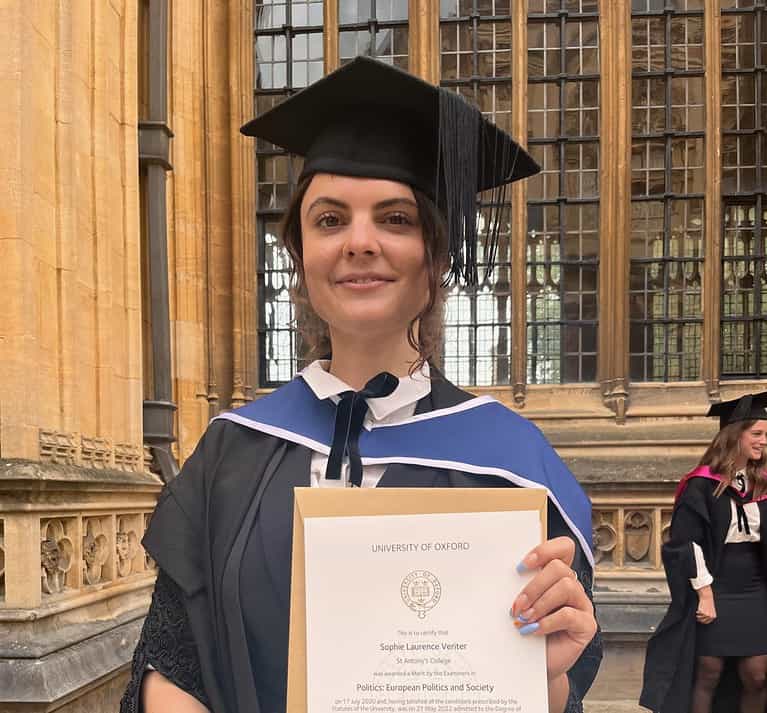
The Ultimate Oxford Application Guide
Dreaming of joining the illustrious ranks of Oxford University students? I’ve been there, and I’m here to guide you through the intricate journey of creating a successful Oxford application. This article provides information about procedures and requirements, as well as valuable insights from my own personal experience as an Oxford graduate and academic coach. If you’re ready to embark on this exciting journey, let’s dive in together!
Lessons from my Own PhD Experience
As mentioned previously, what I enjoyed the most during my PhD degree was the freedom it gave me to grow as a researcher and individual. To be free, however, comes with a set of requirements that enable liberty. Based on my experience, I would highlight the following advice:
Set Clear Boundaries
Perhaps the most difficult aspect when pursuing a PhD is to set clear boundaries for yourself and others. This means having discipline to follow the schedule you set for yourself and learning to say “no” to interesting opportunities that would distract you from your main goals. It also means learning to stand up for yourself when others want to exploit your relative lack of experience. This is important to think about very early on, so that you can develop informed expectations of what your PhD programme will look like. Make sure to discuss with your prospective supervisor what they will require you to produce in terms of research output and what type of teaching duties you may have. You should also look for the support system and resources that the university can give you when you encounter conflict or challenges: they will happen, so better to be prepared!
Collaborate
A PhD degree can be a lonely experience, especially if you aren’t working on a group research project (that was the case for me). Therefore, it’s very important to collaborate with other researchers as well as practitioners. This will help you feel more supported, but also ground yourself as a scholar and help you understand the real-world impact of your research. I recommend reaching out to academics you admire very early on to explore the possibility of writing papers together or collaborating on broader educational or research projects. It’s also good to connect with people who might benefit from your research in their work, so that you can understand how to translate your work into accessible and digestible content.
Visit Other Universities
The best part of pursuing a PhD is being able to visit other universities, whether that’s for a research stay or an academic conference. This will enrich your experience considerably, not only because it will expose you to different research methods and cultures, but also because it will expand your network and reach. I recommend looking into those opportunities within the first year of your doctorate, so that you give yourself enough time to explore various funding options and secure a place where you’d like to stay.

My Residency at the University of Oslo
I had the opportunity of staying in Oslo for a residency at the ARENA Centre for European Studies thanks to a scholarship from the RENPET Network, an alliance of ten universities fostering research on EU foreign policy.
In this blog post, I outline the research project I worked on while in Oslo and explain why it was useful to conduct interviews with Norwegian government officials. I then place it in the broader framework of my doctoral dissertation and reflect on the wonderful experience I had in Oslo and share some of my cultural and sightseeing highlights from the trip.
Personalised Guidance for Success
My PhD journey has been incredible. I had the chance to realise all my aspirations and meet fantastic scholars along the way. Now, as an academic coach with extensive expertise in academia, consulting, and entrepreneurship, I’m deeply committed to helping others achieve their own academic dreams.
If you’re seeking personalised guidance to craft your own successful PhD application, don’t hesitate and book a free consultation with me. Together, we can navigate the intricacies of the doctoral application process, set you on the path to achieving your dreams at this one-of-a-kind institution, and unlock your full potential. Your PhD journey begins with a single step: reach out today, and let’s do it together!
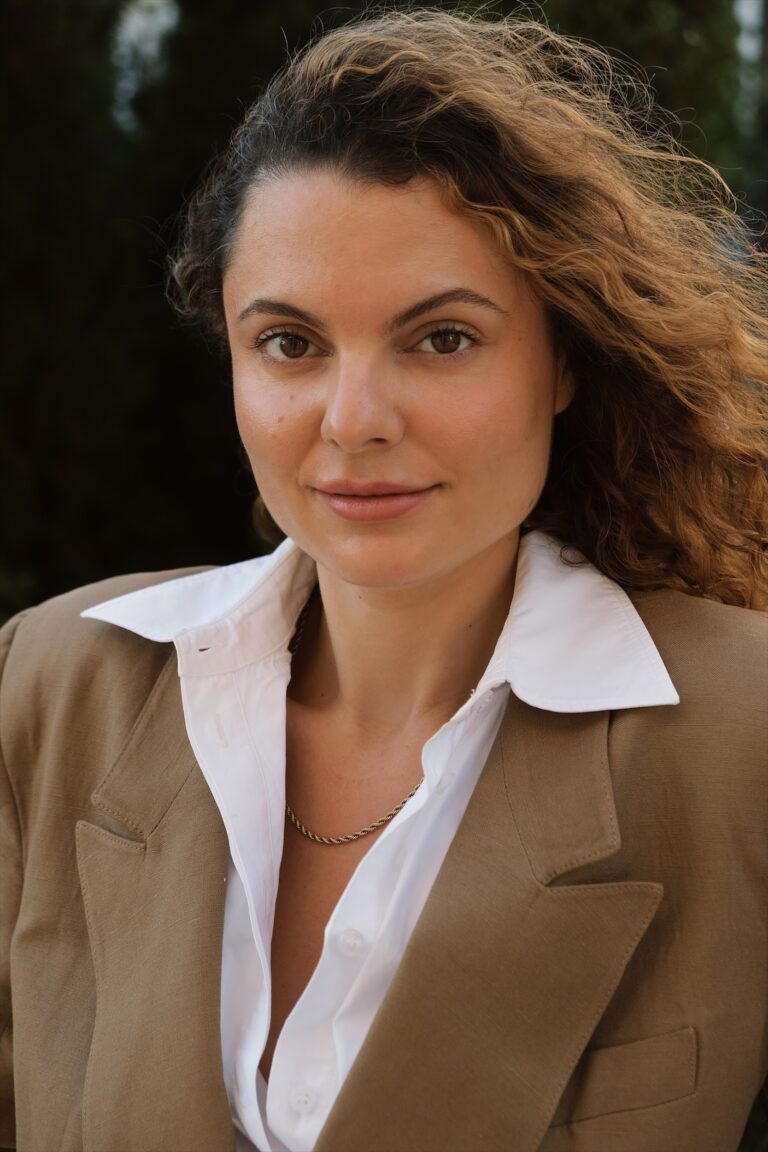
Your journey starts here
I offer on-on-one coaching services to individuals who seek to adopt the mindset that will help them achieve their full potential. Interested? Book a free 15-min consultation with me!
Academic Coaching • Goals Setting • Career Advice • CV feedback • Personal Growth • Productivity

